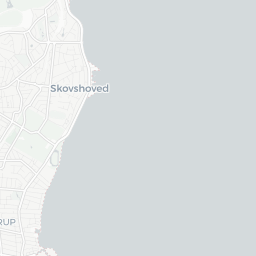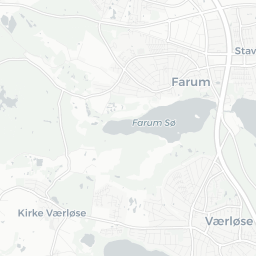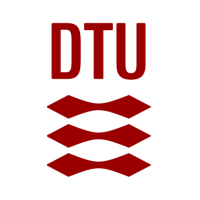Postdoc in Sensor Prototyping - DTU Offshore
Danmarks Tekniske Universitet (DTU)
Do you want to apply your knowledge in prototyping and data processing to develop new chemical sensors? We are looking for a postdoc to join our interdisciplinary team, working on the interphase between applied research and technology implementation.
Are you a mechatronics, mechanical, electrical engineer, or something similar who wants to have the opportunity to work on a project narrowing the gap between fundamental research and application, where research results are translated to real-life technology? The Technical University of Denmark invites applicants for a 2-year postdoc position on developing sensor prototypes.
The position is part of a project funded by the Energy Technology Development & Demonstration Programme (EUDP). The project is led by Associate Professor Jonas Sundberg and is an interdisciplinary collaboration between DTU Engineering Technology, DTU Offshore, Danish Teknological Institute, PoreSense and the Danish Underground Consortium (TotalEnergies, BlueNord, Northsea Foundation).
The position is at DTU Offshore (Lyngby), but you will also work at DTU Engineering Technology (Ballerup), where you have the possibility to work closely with chemists, engineers, and data scientists working on the project. Travel to and stay at other collaborators is expected.
As part of the project, you will develop as a researcher and deepen your technical skills. Furthermore, you will also have the opportunity to build a network, collaborate and disseminate your research at national and international conferences.
Responsibilities and qualifications
The project aim is to develop a sensor prototype for quantifying dissolved methane at seabed to monitor potential leaks surrounding abandonded oil wells. The sensor is based on quartz crystal microbalance (QCM), using quartz resonators functionalised with a porous material that acts as a methane receptor. The project is currently at technology readiness level five, aiming to reach seven by the end. Specifically, the tasks related to this position are 1) the development of a pressure-equalized flow cell to enable measurements under high hydrostatic pressure and 2) the integration of electronics and fluidics into an autonomous prototype. Furthermore, you are expected to contribute to developing software solutions for data collection, signal processing (e.g., drift correction) and visualization. Ultimately, the goal is to demonstrate the prototype at the seabed.
The candidate is expected to:
- Design and build (e.g., rapid prototyping, 3D-printing, injection molding, multi-axis CNC milling) various flow cell designs and performance evaluations.
- Plan and develop a prototype that integrates QCM electronics, fluidics system, and data collection hardware (based osingle-board computer systems, e.g., ESP32 or similar).
- Demonstrate prototype applicability under simulated lab-based and real-life conditions.
- Develop data processing pipelines covering drift correction, sensor I/O, and visualization implemented in Python.
Active dissemination of the results in scientific articles and participation in national and international conferences is integral to the job. Furthermore, participation in supervising B.Eng., B.Sc., and M.Sc. students is expected.
As a formal qualification, you must hold a PhD degree (or equivalent).
More specifically, the ideal candidate has documented experience (i.e., supported by publications in scientific journals) in one or more of the following:
- Computer-aided design (CAD) and rapid prototyping for sensor or device development.
- Electronics and embedded systems using open-source hardware.
- Microcontroller programming and data analysis (e.g., using Python); experience in continuous signal processing is particularly advantageous.
Previous experience in (chemical) sensing or a strong interest and curiosity in the subject area.
We offer
DTU is a leading technical university globally recognized for the excellence of its research, education, innovation and scientific advice. We offer a rewarding and challenging job in an international environment. We strive for academic excellence in an environment characterized by collegial respect and academic freedom tempered by responsibility.
Salary and terms of employment
The appointment will be based on the collective agreement with the Danish Confederation of Professional Associations. The allowance will be agreed upon with the relevant union.
The period of employment is 2 years. Starting date is September 1, 2025 (or according to mutual agreement). The position is a full-time position.
You can read more about career paths at DTU here.
Further information
Further information may be obtained from Associate Professor Jonas Sundberg (jonsun@dtu.dk) or Professor Simon I. Andersen (simand@dtu.dk)
You can read more about DTU Offshore at www.offshore.dtu.dk
If you are applying from abroad, you may find useful information on working in Denmark and at DTU at DTU – Moving to Denmark.
Application procedure
Your complete online application must be submitted no later than 6 May 2025 (23:59 Danish time).
Applications must be submitted as one PDF file containing all materials to be given consideration. To apply, please open the link "Apply now", fill out the online application form, and attach all your materials in English in one PDF file. The file must include:
- Application (cover letter)
- CV
- Academic Diplomas (MSc/PhD - in English)
- List of publications
Applications received after the deadline will not be considered.
All interested candidates irrespective of age, gender, disability, race, religion or ethnic background are encouraged to apply. As DTU works with research in critical technology, which is subject to special rules for security and export control, open-source background checks may be conducted on qualified candidates for the position.
DTU Offshore
Danish Offshore Technology Centre is a research center with a central position in the energy transition. We develop research-based technology solutions for the offshore industry focusing on the development of safe and sustainable solutions.
Technology for people
DTU develops technology for people. With our international elite research and study programmes, we are helping to create a better world and to solve the global challenges formulated in the UN’s 17 Sustainable Development Goals. Hans Christian Ørsted founded DTU in 1829 with a clear mission to develop and create value using science and engineering to benefit society. That mission lives on today. DTU has 13,500 students and 6,000 employees. We work in an international atmosphere and have an inclusive, evolving, and informal working environment. DTU has campuses in all parts of Denmark and in Greenland, and we collaborate with the best universities around the world.
Adresse:
This job posting is collected from company pages and is only shown as short resume. Read entire job ad here:















